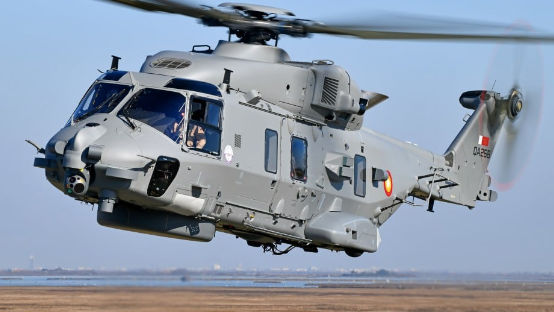NATO-member Norway has scrapped its two-decade-old contract for 14 NH90 maritime helicopters, the defense minister said Friday. The government has said that the reason for the pull out is delays, errors and time-consuming maintenance.
The ministry said it wants a full refund of the nearly 5 billion kroner ($525 million) from NHIndustries, which is owned by Airbus Helicopters (AIR.PA), Italy’s Leonardo (LDOF.MI) and Fokker Aerostructures of the Netherlands.
“Regrettably we have reached the conclusion that no matter how many hours our technicians work, and how many parts we order, it will never make the NH90 capable of meeting the requirements of the Norwegian Armed Forces,” Bjørn Arild Gram said, calling it it “a serious decision.”
Also Read | Amid steep economic crisis, can the Sri Lankan government make payroll?
The helicopter consortium said it was “extremely disappointed” by the decision.
“NHIndustries considers this termination to be legally groundless,” it said in statement, adding that it had not been offered the possibility to discuss the latest proposal made to improve the availability of the NH90.
Norway ordered 14 helicopters for coast guard and anti-submarine warfare duties in 2001, the Armed Forces said. They were originally slated for delivery by the end of 2008, but only eight have been delivered in a fully operational configuration.
“The fleet is currently required to provide 3,900 flight hours annually but in recent years it has averaged only about 700 hours,” the Armed Forces said.
In February, Norway’s Defense Ministry requested that a comprehensive review of the country’s maritime helicopter capabilities was conducted.
Also Read| SpaceX’s Starlink inks in-flight WiFi deal with Hawaiian Airlines
NHIndustries in a statement said it was “extremely disappointed by the decision taken by the Norwegian Ministry of Defense and refutes the allegations being made against the NH90 as well as against the company.”
Airbus shares fell just over 1%.
The Norwegian Defense Ministry said it will shortly begin the process of identifying an alternative maritime helicopter.







